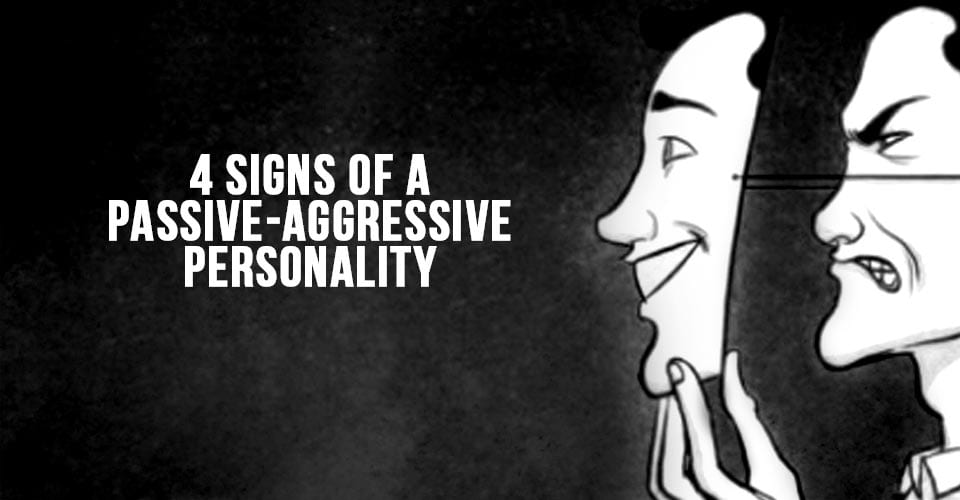Of all the toxic people in our lives, the ones who display passive-aggressive personality traits might be the most difficult to deal with.
They’re sneaky. Their tactics force you to become either a doormat or a bad-guy. A passive-aggressive personality knows just how to pass the burden of their resentments on to you, while avoiding the responsibility of adult conflict. Their emotionally toxic attacks can make you feel crazy. To the outside, it might look like you’re the one who always has a problem.
The more pronounced their passive-aggressive personality traits, the more adept they are at doing this.
You may explode. You may quietly eat away at yourself. You may confront them and be met with a blank, “you’re crazy” stare. These people attack you, but they also rob you of the chance to defend yourself.
It’s best to avoid these types whenever possible. Since they are tricky to identify, here are four signs to help you spot this toxic behavior early on:
1. They can’t – or won’t – speak honestly about their feelings.
A person who shows signs of having a passive-aggressive personality will rarely admit when they’ve been hurt. They won’t vent about a bad day or wonder aloud if someone is upset with them. Instead, they will immediately go on the offensive. They’ll say they are fine – which we all know means freaked-out, insecure, neurotic, and emotional. Then, they’ll plan carefully to hurt the person they feel has wronged them. These people are incapable of addressing their feelings in a way that is healthy. So, a passive-aggressive personality will take the battle where they feel comfortable – on the low road. They hide their true emotions behind a toxic screen.
2. They purposefully exclude others.
When angry at a co-worker, a passive-aggressive personality will not choose to confront the problem head-on. However, they will take action. They might invite everyone else to a work lunch and leave them out. They may accidentally-on-purpose leave their name off an important email. These covert attacks are impossible for the target to ignore. However, they’re unlikely to lead to confrontation. Nobody likes to appear paranoid or overly sensitive. A seasoned passive-aggressor knows this, and will take advantage. They create a toxic environment in which the passive aggressive personality gains control at their target’s expense.
3. They do small things to gain the upper hand.
They may arrive late on purpose. They know you’ll wait. They may play on their phone why you’re trying to address a serious problem. They’ll leave their dishes in the sink when you’ve asked them twice to put them in the dishwasher. A passive-aggressive personality will do these things to avoid conflict, but their motives don’t stop there. They are also asserting their power over you. These little moves are all about control.
4. Their kindness always comes with an edge.
This is another way that a someone with a passive-aggressive personality will attempt to build a sense of dominance. They will never give you genuine praise. Instead, they will use your accomplishments as a way to toot their own horn. “You are such a talented soccer player,” they might say. “I always wanted to join a team, but I was too focused on studying. It’s so hard to get into Harvard these days!” They may also use your strengths to bring you down. They know just how to disguise toxicity as kindness. “Congratulations on that promotion! I wish I qualified for the diversity initiative.” “You look gorgeous in that dress! I’d want one of my own – but I think I’m too thin to pull it off.” Don’t be fooled. There are no good intentions in these back-handed compliments.
“Lingering, bottled-up anger never reveals the ‘true colors’ of an individual. It, on the contrary, becomes all mixed up, rotten, confused, forms a highly combustible, chemical compound then explodes as something foreign, something very different than one’s natural self.” Criss Jami explained the results of passive-aggressive behavior in his book Healology. While passive aggression may appear to avoid conflict in the moment, it ultimately does the opposite. It makes our conflict exponentially more toxic. Our resentments will hide within us. We will feed them there, and they will grow.



